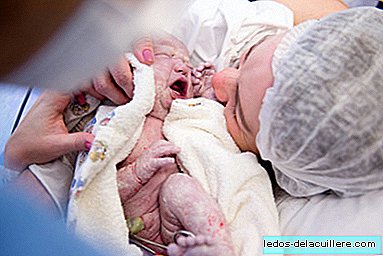
Women who were born prematurely or who have one or more siblings who did are more likely to have a baby that has not reached term, a new study suggests. In this way, premature birth could be related to previous experiences of prematurity in the family.
A team of researchers from the United Kingdom, led by Siladitya Bhattacharya, professor of reproductive medicine at Aberdeen Maternity Hospital, evaluated 22,343 pregnancies in Scotland, of 13,845 women born from 11,576 different women, over a period of 60 years.
When the researchers looked at women who were born prematurely (from single births, without multiple births) and were pregnant for the first time, they found a higher risk of preterm birth compared to those who were not born early.
Specifically, mothers who were born prematurely are 60% more likely to have a premature baby in their first pregnancy. In the following pregnancies of these women, the risk of premature delivery was slightly reduced, to around 50%.
The study, entitled "Inherited Predisposition to Spontaneous Preterm Delivery" ("Hereditary predisposition to spontaneous preterm birth") has been published in the specialized journal "Obstetrics & Gynecology".
In general, experts believe that premature births are due to a complex combination of factors associated with genetic vulnerability, the environment and behavior.
Identified factors are, for example, smoking, drug use and certain infections, especially genitals. But, in most cases, the cause is unknown.
Other recent studies had highlighted the influence of genes on premature births. In an analysis of almost one million births in Sweden, the authors discovered that the sisters of women who had had a premature birth were 80% more likely to give birth to a premature baby than women without such a family history.
In any case, if this is confirmed relationship between preterm birth and hereditary factors, special attention should be given to these women at high risk to avoid other factors that can trigger premature birth and monitor pregnancy development especially.












